How Much Water Should Toddler (1 to 3 Years) Drink in a Day?

- How Much Water Should Your Toddler Consume in a Day?
- Different Types of Water Your Toddler Can Drink
- How to Know Whether Your Toddler Is Drinking Enough Water?
- How to Encourage Your Toddler to Drink Water?
- What Types of Drinks Can Be Given to a Toddler Besides Water?
- Dos and Don’ts
- FAQs
Parents take great care of their baby’s diet and nutritional needs. However, water is also equally important for your growing toddler. It is required for the proper functioning of the brain and the muscles. Many times, parents undermine the importance of water, thinking that their toddler can compensate for his water intake by drinking other fluids, and thus, they may skip feeding water to their toddler. Though other fluids make up the body’s fluid intake, they cannot be substituted for water at all times. So, how much water should a 1 to 3-year-old toddler drink every day? Read on to know about it.
How Much Water Should Your Toddler Consume in a Day?
Water is very important for the growth and development of your toddler. Therefore, parents should get their children into the habit of drinking water from a young age. A child between 1 and 3 years old needs about 4-5 cups of water in a day, as per the American Academy of Pediatrics (1). This water may come from milk, fruit juices or from the food they feed. The requirement will increase with age: 5 cups for 4 to 8-year-old children and 5-6 cups for 9 to 13-year-old children (2). The water requirement of a toddler also depends on the climate. If you are staying in a hot and humid climate, then your toddler may require more water to prevent dehydration and exhaustion. Also, if your toddler is very physically active, he may need more water to keep his body hydrated. The same applies to toddlers who are sick; they must also be fed sufficient water, especially if they have a cold, the flu or diarrhoea. Our body loses fluid as it makes mucus and it drains away. Moreover, liquid helps loosen up the mucus in the nose and head. But don’t overdo giving water.
Different Types of Water Your Toddler Can Drink
Yes, there are different types of drinking water your toddler can drink. You can start with plain water, but if it is not sufficient, you can try the following:
- Regular tap water: This is safe for children six months old when they start eating solids; there is no need to boil it.
- Bottled mineral water: Minerals are added to bottled mineral water. It is fine if the mineral levels, like sodium and fluoride, are low.
- Sparkling water: Sparkling water is safe for 2-year-old children as long as it has no added sugars.
- Flavoured water: It’s occasionally okay if it’s sugar-free, but it should be a treat, not a regular drink.
How to Know Whether Your Toddler Is Drinking Enough Water?

Water is an essential requirement of the human body, and your toddler requires adequate amounts of water for his body and brain to function properly. In case you feel your toddler is not having enough water, you should look out for the following signs:
1. Urine and Bowel Movements
A toddler who drinks an adequate amount of water may urinate five to six times a day. However, if your child is not drinking enough water, he may not urinate frequently, and you will also notice the colour of his urine changing from pale yellow to dark yellow. Your toddler could also experience trouble in passing stools, and he could become constipated. Darker urine and harder bowel movements indicate that your toddler is not having enough water.
2. Mood
Water is a basic requirement for all our body parts to function properly. In the dearth of water, your toddler may appear tired and low on energy. You may also notice a change in his sleeping pattern, and he may appear to be more sleepy and sluggish. Lack of water can make your baby irritable and fussy too.
3. Physical Appearance
Inadequate water intake can become evident from your toddler’s physical appearance also. A healthy toddler has shiny skin and bright eyes. On the other hand, a toddler who isn’t drinking ample water may have dry and flaky skin. His eyes may appear sunken and lack healthy shine. His mouth may appear parched and dry, and he may shed very few or no tears while crying.
If you’ve noticed your little one hasn’t been drinking enough water, you need to up your game and encourage him to drink more. The next section will help you with some interesting ways to feed your toddler water.
How to Encourage Your Toddler to Drink Water?
Toddlers need to be introduced to water, just like you do for other foods. As parents, you would also have to encourage them to drink an adequate amount of water every day. So, how to get a toddler to drink water? Here are some tips to encourage your little one to drink enough water throughout the day:
1. Lead By Example
Your little one loves to follow you, and most of the time, he will do things that you do. Therefore, if you want your toddler to get into a healthy habit of drinking water, the best you can do is lead by example. Drink water often in front of your toddler, and he will surely follow you.
2. Get a Fun Cup
Buy a cup/sippy cup with your toddler’s favourite cartoon character icon it and use it every time you feed him water. Getting him his own cup and letting him have easy access to it may just do the trick.
3. Add Some Flavour
Boring things do not appeal to toddlers. Make things interesting, and you will get your toddler’s attention. Throw in a slice of lemon, an orange wedge, or some berries for some added flavour to the water (3). You’ll be surprised to see how your little one will drink up his whole cup in no time.
4. Make Water Accessible
It can be a good idea to get one/two extra sippy cups and keep water for your toddler at places he can easily access. He can then drink water all by himself whenever he is thirsty. Ensure you refill the cups as and when required.
5. Water Drinking Games
Get your toddler involved in some fun and exciting games that involve sipping water. If there are other kids in the house, you can have a competition too. It is a great way of making your toddler drink. However, ensure he drinks just the right amount of water. Too much water can make him throw up.
6. Fun With Ice-Cubes
You can set some interesting ice moulds and freeze water in them. Throw in two to three cubes in your toddler’s sippy cup. The fun and interesting shapes will lure your toddler into drinking from his cup. You may skip this idea if your baby is sick or not at all used to drinking cold fluids.
As mentioned earlier, other fluids can be substituted to maintain fluid intake. If your kid doesn’t drink water even after trying the tips given above, you may want to look for alternatives. Read on to know them.
What Types of Drinks Can Be Given to a Toddler Besides Water?
If your baby doesn’t drink an adequate amount of water every day, you may choose to feed him other foods/fluids that still hydrate his body and mind. Here are some of them:
1. Fruit Juices
Freshly squeezed fruit juices made at home are a great option to fulfil your toddler’s daily water intake. It is recommended that you feed your little one juice in its original form and refrain from adding any sugar. You may give pomegranate, orange, sweet lime or various other fruit juices to your toddler. You may choose to add a little water to dilute the juice if your baby tends to have an upset stomach after drinking it.
2. Clear Soups
Clear soups are a great way of increasing your toddler’s water intake. Feed them warm soups as and when required to keep them hydrated and provide nutrition, too.
3. Milk and Curd
Milk and curd are healthy alternatives to water. Most toddlers love to have milk, and thus, it eases your worry of feeding fluids to your toddler. However, refrain from feeding too much milk or milk products to your toddler. Curd or buttermilk can be a good option for those kids who are lactose intolerant, but make sure it is not cold.
4. Juicy Vegetables and Fruits
Consuming fresh vegetables and fruits that have high water content can be a great idea to make up for the daily water requirement of your toddler. Did you know that the amount of water obtained from fruits and vegetables is directly proportional to the water we get out of our food (4)? So, basically, the amount of water in watermelon, cantaloupe, and strawberries is similar to the water content of cabbage, lettuce, and spinach. They also provide ample nutrients, including fibre, which can aid your baby’s digestive system. Cucumbers, watermelon, cherries, sweet lime, oranges, apples, etc., are some of the options you can try.
Now that you know the alternatives you can use to keep your toddler hydrated, here are some dos and don’ts you must remember while feeding your little one fluids.
Dos and Don’ts
These dos and don’ts will keep your baby hydrated and healthy, too (1).
- Always feed water or other liquids at regular intervals. Do not feed him large amounts of water in one go.
- Sipper cups are a great way of making the transition from the bottle to cup. Introduce it when your toddler is able to hold things better.
- Keep the water cup handy wherever you go so you can feed your little one water whenever he is thirsty.
- You may add flavours to plain water if your toddler resists plain water.
- Do not give your toddler sugar-based juices or drinks. Avoid packaged juices, too, as they are processed and contain large amounts of sugar and preservatives, which could lead to obesity and other health conditions.
- Avoid flavoured milk as they are high in sugar, which can later make it difficult to get toddlers drink plain milk.
- Refrain from only providing fruit juice to your toddler as fruit juice lacks fibre, which is highly essential for a toddler’s growth (5).
- Do not feed caffeinated beverages or drinks to your little one, as caffeine is known to induce anxiety and insomnia. Also, it is very easy to get addicted to this stimulant, and children, too, can have withdrawal symptoms if it is suddenly cut down from the diet.
FAQs
1. How much water should my two-year-old toddler drink?
You should not give more than two 8-oz cups of fluids to your two-year-old toddler in day (6).
2. What are the signs of dehydration in toddlers?
Signs of dehydration in toddlers and children include reduced urination, dark urine, dry mouth, no tears when crying, irritability, sunken eyes, and drowsiness or dizziness (7) (8). Recognising these symptoms early and seeking medical help is crucial to ensure your child gets the necessary fluids and to address any underlying causes (9).
3. What is water intoxication in toddlers?
Water intoxication is rare, but it can occur if too much water is consumed. It can overwhelm the kidneys and leading to hyponatremia, which lowers blood salt levels (10). Consult a paediatrician to learn the appropriate amount and method of water intake for your toddler.
As a parent, it is your duty to pay heed to how much water your toddler is drinking. Water is essential for your little one’s growth and development. Use the tips given in the article above to keep your baby hydrated and healthy. Having said that, if you have any concerns regarding the same, you should consult a paediatrician and seek medical advice.
References/Resources:
1. Choose Water for Healthy Hydration; American Academy of Pediatrics; https://www.healthychildren.org/English/healthy-living/nutrition/Pages/Choose-Water-for-Healthy-Hydration.aspx
2. Hydration tips for children; Healthdirect; https://www.healthdirect.gov.au/hydration-tips-for-children
3. 11 Ways to Get Your Kids to Drink More Water; Children’s Hospital Colorado; https://www.childrenscolorado.org/conditions-and-advice/parenting/parenting-articles/get-kids-to-drink-water/
4. Popkin. B. M, D’Anci. K. E, Rosenberg. I. H; Water, hydration, and health; Nutr Rev.; PubMed Central; https://www.ncbi.nlm.nih.gov/pmc/articles/PMC2908954/; August 2010
5. Water, drinks and hydration; NHS; https://www.nhs.uk/Live-well/eat-well/food-guidelines-and-food-labels/water-drinks-nutrition/
6. How Much Water Should Kids Drink?; CHOC; https://choc.org/programs-services/urology/how-much-water-should-my-child-drink/
7. Signs of Dehydration in Infants & Children; American Academy of Pediatrics; https://www.healthychildren.org/English/health-issues/injuries-emergencies/Pages/dehydration.aspx
8. Dehydration; Nemours KidsHealth; https://kidshealth.org/en/parents/dehydration.html
9. DEHYDRATION IN KIDS: EARLY WARNING SIGNS AND TREATMENT; UNICEF USA; https://www.unicefusa.org/stories/dehydration-kids-early-warning-signs-and-treatment
10. Joo. M. A, Kim. E. Y; Hyponatremia caused by excessive intake of water as a form of child abuse; Annals of Pediatric Endocrinology & Metabolism; https://e-apem.org/journal/view.php?doi=10.6065/apem.2013.18.2.95; June 2013
Also Read:
When Can a Toddler Have a Pillow?
Ways to Get a Toddler to Sleep at Night
How to Make a Routine that Your Toddler Will Love to Follow
Was This Article Helpful?
Parenting is a huge responsibility, for you as a caregiver, but also for us as a parenting content platform. We understand that and take our responsibility of creating credible content seriously. FirstCry Parenting articles are written and published only after extensive research using factually sound references to deliver quality content that is accurate, validated by experts, and completely reliable. To understand how we go about creating content that is credible, read our editorial policy here.







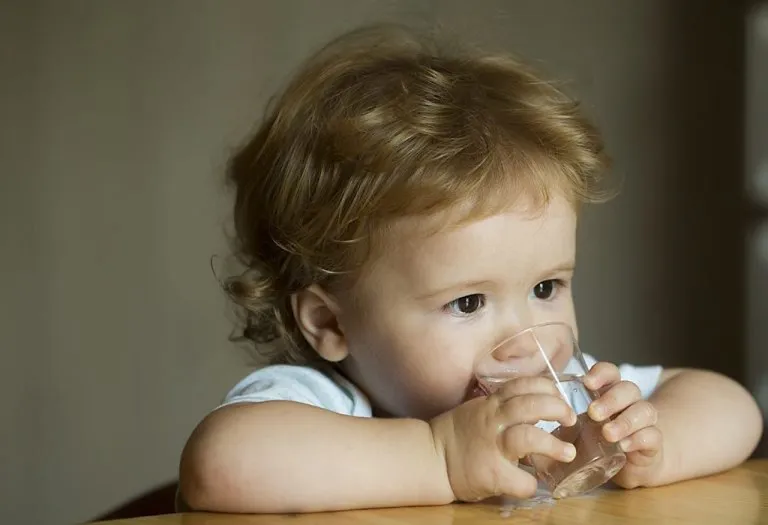
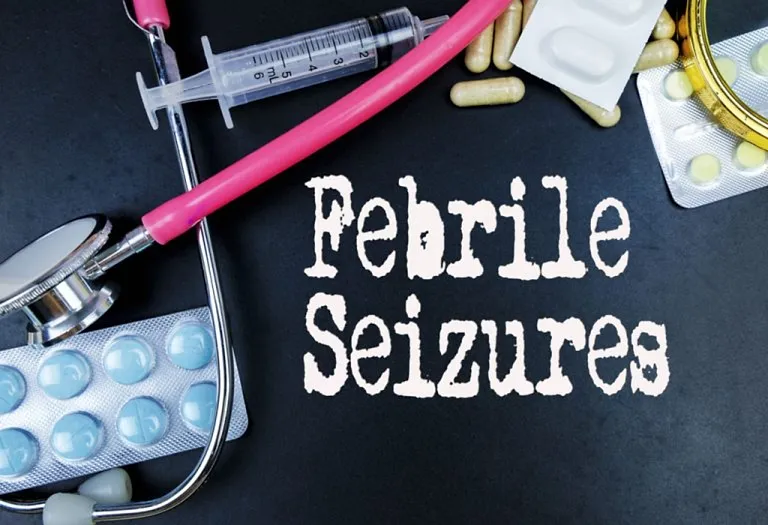
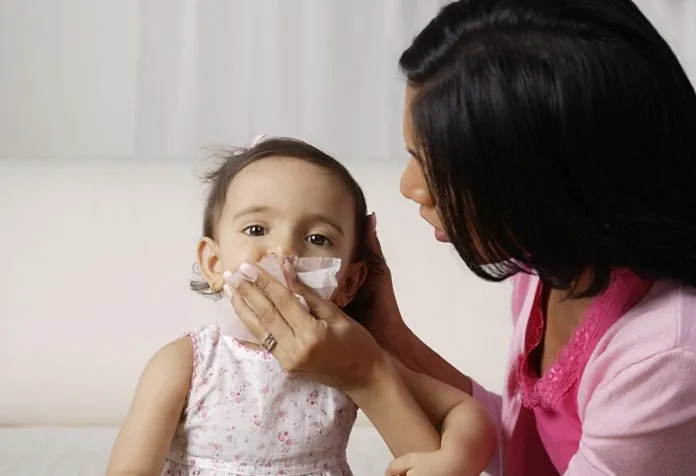
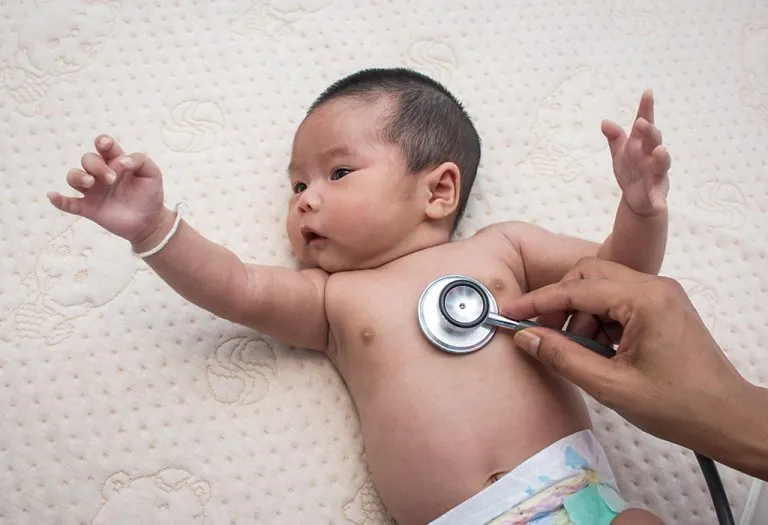
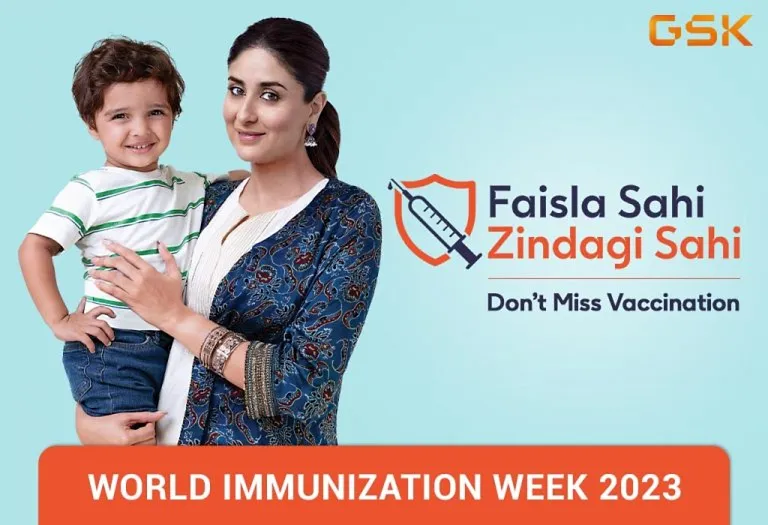
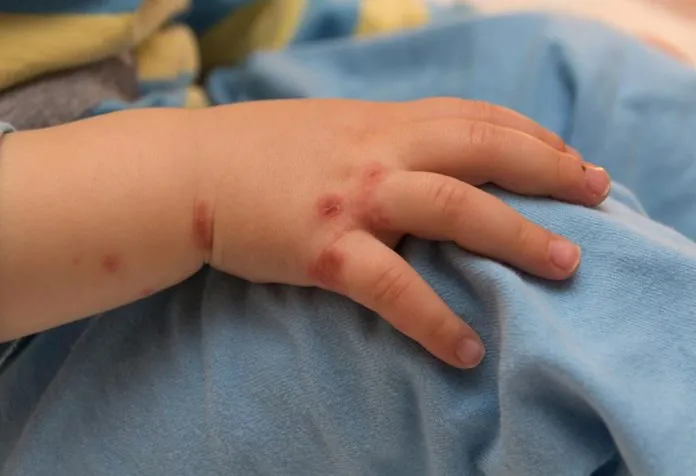
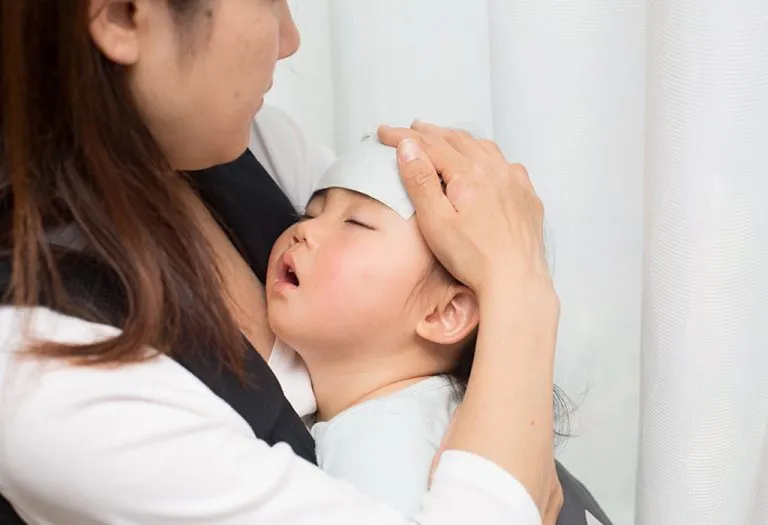

.svg)
















